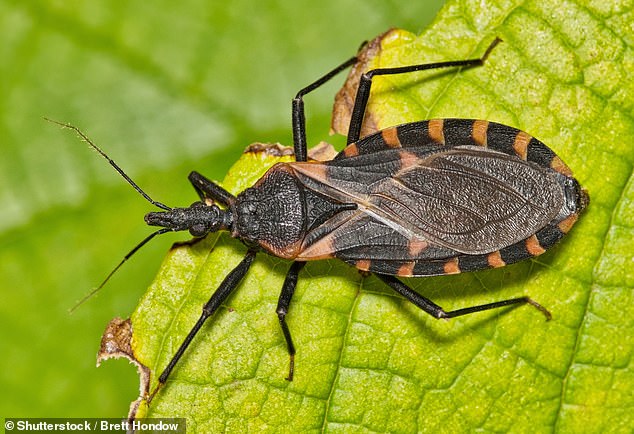
Experts Warn Parasites Feasting on Humans Spread Deadly Diseases Across the U.S.
Deadly ‘Kissing Bugs’ Spread Silent Killer in Southeastern U.S., Experts Warn
Dangerous "kissing bugs" in the southeastern U.S. may be spreading Chagas disease, a parasitic illness that can cause heart failure, blood clots, and intestinal damage if untreated, researchers warn. A decade-long study in Florida and Texas revealed these insects, which carry the parasite Trypanosoma cruzi, are increasingly invading homes, putting humans and pets at risk.
[Image: Triatomine bug with caption: Kissing bugs transmit Chagas disease by depositing parasite-infected feces near their bites.]
The Silent Threat
Chagas disease currently infects an estimated 280,000 Americans, many unaware due to its asymptomatic early stages. Left untreated, the parasite can linger undetected for decades. Researchers found that over a third of 300 kissing bugs collected in 23 Florida counties lived inside homes, with one in three carrying the deadly parasite. Infections were detected in 12 counties, signaling widespread risk.
Why Are They Invading Homes?
Urban expansion into natural habitats is likely driving kissing bugs indoors. "We’re building into their environment, increasing contact with humans and pets," said Dr. Samantha Wisely, co-author of the study in PLOS Neglected Tropical Diseases. These bugs, active at night, hide in cracks or ceilings during the day and feed on blood—often biting faces, earning their nickname.
[Image: U.S. map highlighting states with kissing bug sightings, including Florida, Texas, and New Mexico.]
Transmission and Symptoms
The parasite spreads when bug feces enter the body through bites, mucous membranes, or contaminated food. Early symptoms—fever, fatigue, rash—are easily missed. Chronic cases damage the heart and digestive system, leading to life-threatening complications. Anti-parasitic drugs can treat the infection if caught early, but tracking remains limited in the U.S.
Pets and Wildlife at Risk
The study found bugs inside homes primarily fed on humans, while outdoor bugs targeted wildlife. Pets, however, are vulnerable carriers. "Don’t store wood piles near your house or where pets sleep," warned Dr. Wisely. Kissing bugs hitchhike indoors via these materials, increasing exposure risk.
[Image: Graph showing kissing bugs’ feeding habits: indoor vs. outdoor hosts.]
Prevention Strategies
To reduce risk:
- Seal home cracks and gaps.
- Keep yards clear of debris.
- Install insect screens.
- Avoid bright outdoor lights that attract bugs.
- Regularly inspect pet sleeping areas.
Dr. Norman Beatty, a co-author, emphasized vigilance: "Our study shows these bugs are here, they’re biting, and they carry the parasite." Health officials urge awareness in the 29 states where kissing bugs reside, particularly the Southeast and Southwest.
With Chagas disease underreported, experts stress the need for proactive measures to curb this "silent killer" before chronic cases surge.
Final Image: Side-by-side of a kissing bug and a magnified Trypanosoma cruzi parasite with caption: Early detection and habitat management are key to preventing Chagas disease.]
(Word count: ~600)


